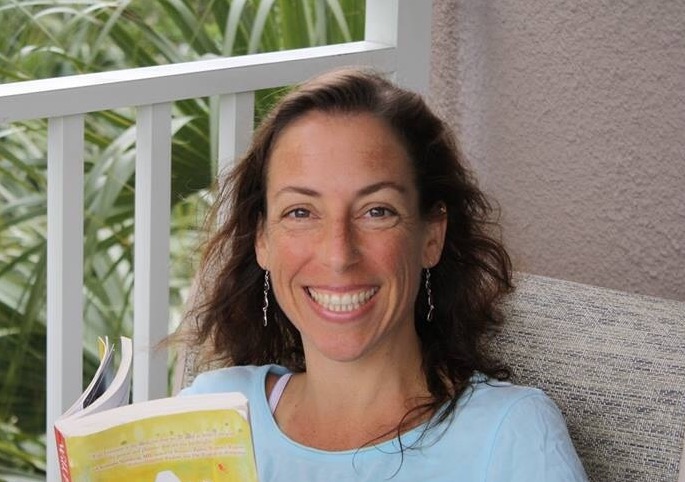Jealousy in polyamorous relationships and how couples handle it
There’s a belief going around that if someone is genuinely polyamorous and interested in being in a polyamorous relationship they can’t feel jealous; or they shouldn’t feel jealous. This is not true. The trick in dealing with jealousy in polyamorous relationships is not to get rid of it, says our guest author Laurie Ellington (picture below), a coach of open living, here on the Online-Dating-Site of Polyamore.
Laurie Ellington

Those who choose polyamory are just as likely to feel jealous as those who choose monogamy. Jealousy is an emotion. We all experience emotions. They are a natural part of being human.
The trick in dealing with jealousy in polyamorous relationships is not to get rid of it, but rather to look at it and see what it’s showing us. I think all feelings are an expression of needs that we have. Positive feelings are indicators that needs are getting met; negative feelings are indicators that needs are not getting met.
When we take the time to get real with jealousy (rather than push it away, judge it, or judge people for having it), we open the possibility of creating a new experience.
Here’s what I share with my polyamorous relationship clients when they are experiencing jealousy:
1. Recognize that you are having an emotion (jealousy), and give yourself permission to feel it. Giving ourselves permission to feel is a new concept for many; and, it’s key to releasing the pain of experiencing uncomfortable emotions.
2. Get really present with the sensations of the emotion. Ask yourself: “What sensations do I feel (tingling, tightness of breath, heat, etc.), and where do I feel them?” (tightness in jaw, shortness of breath, heat running through my body, etc). Give yourself some time to feel the sensations, without doing anything about them.
3. Notice what thoughts, stories, and images come to mind. The key is to notice without doing anything. When we take time to notice, we create space between what is actually happening and what our minds want us to believe about what is happening.
"It’s not easy to be vulnerable. In sharing our experience, we are freeing up the energy of the emotion, and allowing a new experience to come into our lives"
4. Label any thoughts, stories, images: “I have this thought that’s telling me ‘I’m not good enough.’”… “I remember I felt this way in a previous relationship…” Notice story lines, beliefs you have about a certain kind of feeling, any visuals that come to mind.
5. Use simple words to share your experience with the person or persons you are with. Speak in a way that creates connection. This invites the other person into your world and is much different than projecting your feelings on to them or blaming them for your experience. Try this: “I’m aware that I’m having a feeling. I feel it mostly in my chest. It’s like my breath feels constricted. It feels like jealousy. I don’t like to admit, or share this, but it’s happening and I need some help in moving through it. Can you be with me for a few minutes?”
This is one of the hardest things to do. Why? Because it’s not easy to be vulnerable. And yet, in sharing our experience with another person, we are actually freeing up the energy of the emotion, and allowing a new experience to come into our lives.
"Keep in mind that working through unpleasant emotions can be challenging"
6. Keep in mind that working through “unpleasant” emotions can be challenging. And, the more you do it, the easier it is. It’s like working out a new muscle. At first it seems tender and weak, and then with practice it gets strong. In the end, it’s the practice that will build confidence.
"Use the word “desire,” we allow the person we are with to accept or reject the desire we are requesting"
7. Consider what you need and ask for it using the word “desire” rather than “need”. Why? When we use the word “desire,” we allow the person we are with to accept or reject the desire we are requesting. When we use the word “need”, it is implied that the other person is expected to meet that need. We need to constantly remind ourselves that we are in charge of our experience, and we are in charge of getting our needs met. When we ask for help, it’s important to do so in a way that gives the other person choice, rather than demand that they do it. This is where polyamorous relationship coaching can be helpful.
"We need to remind ourselves that it’s not the emotion we are feeling but we do with the emotion that will either help or hinder our relationships"
8. Be kind to yourself and to your partner when one (or both) of you are experiencing jealousy (or any emotion). Moving through unpleasant emotions can be challenging. We have been programmed not to feel, and so there is risk in revealing how we feel. In a polyamorous relationship, it is so important for partners to support each other when something comes up. Support does not mean enable. Support means be there, offer some space, and recognize that the person who is experiencing jealousy might have a need that isn’t being expressed. Love that person, be with them, help them be with the emotion, and help them identify and express what they need.
9. Remember, the person is not the emotion or the meaning they (or someone else) may put on the emotion. People are human. Humans experience emotions. Emotions are normal part of being human. It’s that simple. We need to remind ourselves that it’s not the emotion we are feeling but we do with the emotion that will either help or hinder our relationships.
Laurie Ellington - life-long coach of open living and loving

The author:
Laurie Ellington, Poly-Coach, Offers Coaching Tips for Open Relationships, Polyamorous Relationships, Poly Dating, and Non-Monogamy. Laurie also offers services world-wide using Skype.
For more information about Laurie and her coaching practice, please visit her website
To join our Online-Dating for Polys please visit Polyamore
